U.S.-Led Meeting on Israeli-Palestinian Conflict: Who's Attending?
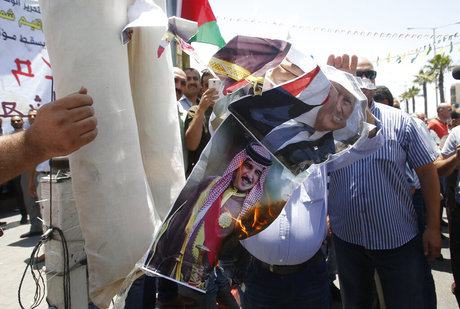
AFP
The United States is set to co-chair a two-day conference in Bahrain from Tuesday focusing on the economic aspects of President Donald Trump's Israeli-Palestinian peace plan.
The declared aim is achieving Palestinian prosperity -- but Palestinians are boycotting the event, which they see as an attempt to buy them off.
The workshop in Manama will bring together government, business and civil society leaders, according to a joint statement by the two organizing countries.
It could see large-scale investment pledges for the Palestinian territories, but is unlikely to focus heavily on the political issues at the core of the Israeli-Palestinian conflict.
- Palestinian leadership and Israel -
The Palestinians confirmed in May they would not participate in the conference, adding they were not consulted before it was announced.
"Palestine will not attend the Manama meeting," a statement on the Palestine Liberation Organization's (PLO) website said.
"This is a collective Palestinian position, from President Mahmoud Abbas and the PLO Executive Committee to all Palestinian political movements and factions, national figures, private sector and civil society."
Abbas reiterated his position on Saturday as the U.S. unveiled details of the plan. The Palestinian leader said a political solution must come before any discussion of economic issues.
The Palestinians have boycotted the US administration since Trump broke with decades of consensus and recognised Jerusalem as Israel's capital in December 2017.
Palestinians consider the eastern part of the city the capital of their future state and have opposed the proposed U.S. peace plan, which they fear will be heavily biased in favour of Israel.
Israeli Prime Minister Benjamin Netanyahu has said Israelis will attend, but it was unclear whether they would include government officials or business leaders.
- Gulf countries -
Gulf powerhouses Saudi Arabia and the United Arab Emirates last month welcomed the economic conference.
Riyadh said it would send Economy and Planning Minister Mohammed al-Tuwaijri, saying Saudi participation reaffirms the kingdom's "firm position to support the Palestinian people to achieve their stability and growth", according to the official Saudi Press Agency.
Abu Dhabi's foreign ministry also said it would send a delegation, but reiterated that it supports the establishment of a Palestinian state with east Jerusalem as its capital.
It remains unclear whether Qatar -- isolated by regional former allies, including Bahrain, in a long-running diplomatic dispute -- will attend the conference.
Qatar, a close U.S. ally, said it "has followed the call by the United States" to hold a workshop in Manama, according to a foreign ministry statement.
It added it would "spare no effort" to address challenges facing the Arab region, but did not say whether it would be represented at the meeting.
Kuwait and Oman have not confirmed whether they will attend.
- Jordan, Egypt and Morocco -
Jordan and Egypt -- the only Arab countries to have signed peace deals with Israel -- finally confirmed their attendance on Saturday.
Jordan's treaty with Israel is overwhelmingly opposed by the public, more than half of whom are of Palestinian origin.
Both countries however said officials from their finance ministries would attend the workshop.
Jordan's foreign ministry spokesman Sufyan al-Qudah confirmed that Amman would send the secretary general from its finance ministry, without giving a name.
Egypt's foreign ministry spokesman Ahmed Hafez told AFP that Cairo would send a delegation headed by a deputy finance minister, again without giving a name.
On Monday, Morocco announced it would take part in the conference.
Rabat, which does not have relations with Israel, said it would be represented by an official from the economy ministry, according to the official news agency MAP.
The United Nations announced on June 12 that it would send its deputy Middle East coordinator Jamie McGoldrick to the event.
Latest News
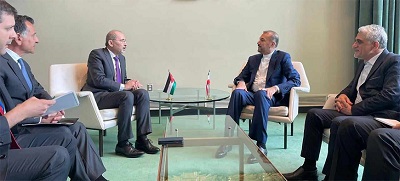 Safadi, Iranian counterpart discuss war on Gaza, regional escalation
Safadi, Iranian counterpart discuss war on Gaza, regional escalation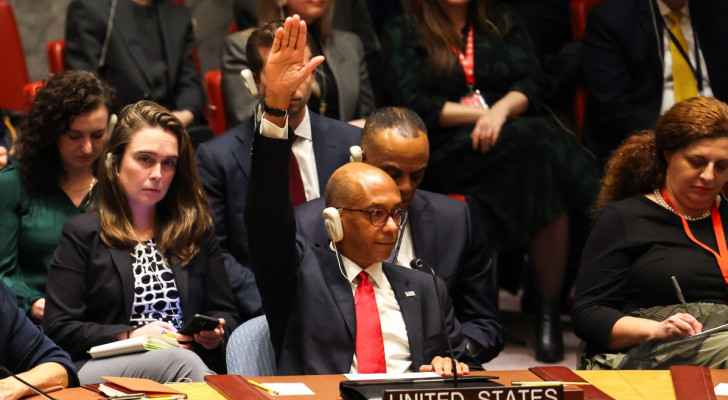 US vetoes Security Council resolution on full Palestinian UN membership
US vetoes Security Council resolution on full Palestinian UN membership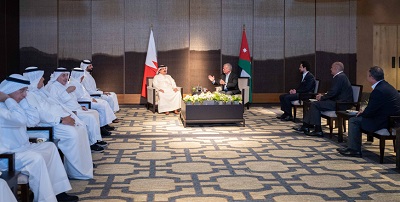 King, Bahrain monarch stress need to maintain Arab coordination
King, Bahrain monarch stress need to maintain Arab coordination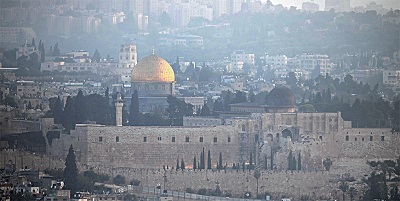 Security Council to vote Thursday on Palestinian state UN membership
Security Council to vote Thursday on Palestinian state UN membership Dubai reels from floods chaos after record rains
Dubai reels from floods chaos after record rains
Most Read Articles
- Jordan urges UN to recognise Palestine as state
- Senate president, British ambassador discuss strategic partnership, regional stability
- JAF carries out seven more airdrops of aid into Gaza
- Temperatures to near 40 degree mark next week in Jordan
- Safadi, Iranian counterpart discuss war on Gaza, regional escalation
- UN chief warns Mideast on brink of ‘full-scale regional conflict’
- US vetoes Security Council resolution on full Palestinian UN membership
- Google fires 28 employees for protesting $1.2 billion cloud deal with “Israeli” army
- Biden urges Congress to pass 'pivotal' Ukraine, Israel war aid
- Israeli Occupation strike inside Iran responds to Tehran's provocation, reports say